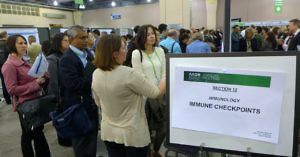Is TIM–3 the next important checkpoint target?
One of the most important challenges in cancer immunotherapy is overcoming immune resistance. For example, even with the high response rates seen in acute lymphoblastic leukemia (ALL) with CAR – T cell therapy, a significant number of patients relapse after an initial response.

Chinatown, Honolulu 2016
Could immune resistance be reversed or prevented by the addition of appropriate checkpoint blockade? Which ones matter though, that is the critical question? Rather than randomly picking ones to try, we need scientific evidence regarding these choices.
This post explores some of the latest data presented at the BMT Tandem meeting on the role of T cell immunoglobulin mucin–3 (TIM–3) and PD–1 upregulation in causing resistance.
If you’re not already a sub and want to read our coverage of ASH, BMT Tandem and the forthcoming AACR 2016 annual meeting, you can purchase individual access below. This week only – inspired by the story of Eddie Aikau in Hawaii – we have a special offer that we’ve never done before (and may never do again) of $75 off a quarterly subscription. The deal ends tomorrow Friday March 4th at 12 noon HST. Check it out!
Subscribers can login to read more about the latest data on how alternative checkpoint inhibitors may have a role to play in cancer treatment. Welcome to the new folks who signed up this week, good to see y’all!
This content is restricted to subscribers

 There are a number of elements that many people are interested in, especially given the Merck and BMS clinical data at AACR, where we clearly saw that:
There are a number of elements that many people are interested in, especially given the Merck and BMS clinical data at AACR, where we clearly saw that: